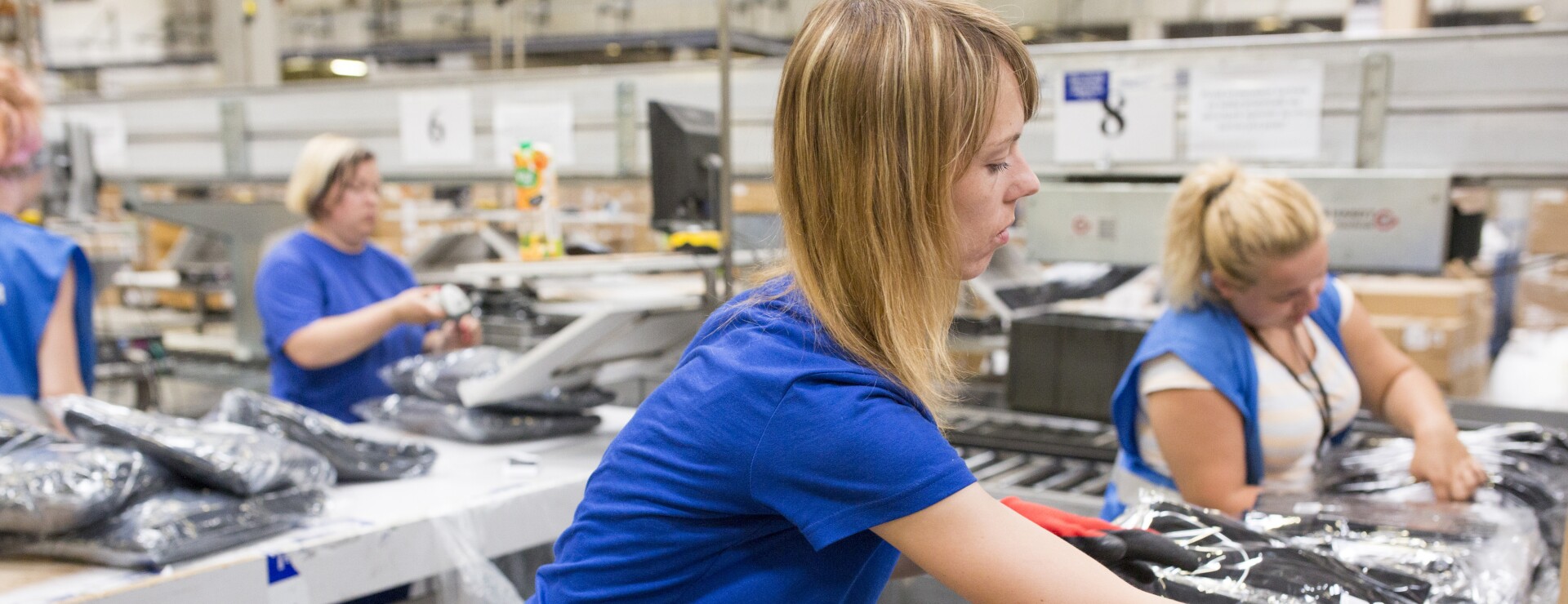State lawmakers across the country are increasing scrutiny of apparel companies, with proposals aimed at boosting accountability for the fashion industry’s labor and environmental practices.
Legislators in Massachusetts and Washington are drawing inspiration from New York legislation to require fashion sellers to map their supply chains, identify risks, and mitigate harm to workers and the environment. The New York measure filed in both chambers, dubbed the Fashion Act by supporters, has yet to move through the statehouse but has support from labor unions, environmental groups, and companies and brands such as Eileen Fisher and Patagonia.
Backers across states point to the fashion industry’s climate impact, chemical use, and other aspects of its environmental footprint—as well as global supply chains that may include exploited workers and other unethical labor practices. The growth of “fast fashion,” or inexpensive clothing that consumers can easily purchase and discard, has heightened legislative interest in new mandates.
“I think the industry as a whole really needs to bring their A game to the table in terms of their practices and policies,” said Kristine Kruger, senior counsel at Perkins Coie LLP, of the response to the state-level efforts.
The bills in Democratic-led states show an industry-specific approach to addressing climate change and regulating other environmental, social, and governance (ESG) factors as opposed to broad measures across a range of sectors. A group of retail, fashion, and business trade organizations oppose the New York legislation. State-level attempts to regulate a global supply chain “will present real and significant challenges to local businesses,” said Melissa O’Connor, president and CEO of the Retail Council of New York State.
“The legislation as currently drafted does not take into consideration existing corporate social responsibility and environmental, social and governance initiatives that are being implemented by the stores we represent,” she said in a statement.
Landmark Legislation
New York’s fashion legislation came from recognition that voluntary initiatives in the industry weren’t working because “the market incentives were just not there,” said Maxine Bédat, founder and director of the New Standard Institute, a fashion-focused think tank. Bédat helped in crafting the bill, which was introduced in prior legislative sessions.
“It’s definitely a landmark piece of legislation, and it’s a new kind of regulation,” Bédat said. “It’s taken time to educate legislators, even that fashion has a huge environmental and labor impact.”
The bill’s requirements would apply to clothing, fashion bag, or footwear sellers exceeding $100 million in annual gross receipts that do business in New York. They wouldn’t cover used clothing or multibrand retailers unless their private labels reach that threshold.
Companies would face sweeping reporting, disclosure, and due diligence requirements throughout their supply chain, under the measure. The legislation includes requirements for mapping suppliers across tiers, from companies that provide finished goods down to those that provide raw materials.
For some suppliers, companies would have to report the mean wage of workers compared to the local minimum wage and living wage, as well information on unionized factories and hours worked. The bill would direct companies to incentivize their suppliers to improve workers’ rights, and it states that wages and benefits should at least meet local labor laws.
Businesses would also face environmental requirements, such as greenhouse gas emissions reporting and reduction targets. The proposal would require reporting and remediation regarding wastewater pollution by certain suppliers of garment washing, dyeing and finishing.
Penalties for noncompliance could reach up to 2% of a seller’s annual revenues. Sellers would also be liable for the unpaid wages of some workers in their supply chain.
Claims vs. Action
Momentum behind the bill is growing with additional co-sponsors in New York, and backers have been in touch with lawmakers in Washington and Massachusetts on legislation in those states, Bédat said.
Patagonia Inc.—which lists climate goals and other environmental initiatives on its website—has already been working on many of the ESG issues that lawmakers are addressing, said Corley Kenna, head of communications and public policy. The company is endorsing the New York legislation because it’s important to mandate compliance, Kenna said.
“Most of the claims that companies make with regard to people and planet are voluntary, and there’s no enforcement, right?” Kenna said. “With that, you get a lot of claims and not a lot of action.”
If Patagonia is still happy with the final version of New York’s bill, “we’re fine to see other states have exact copycat versions also passed,” Kenna said. The company wouldn’t want differing state requirements and believes action at the federal level would be preferable, she said.
The American Apparel and Footwear Association, the Washington-based trade group that represents more than 1,000 name brands, is working across state legislative proposals to advocate for an industry protocol dubbed “THREADS,” said Nate Herman, senior vice president of policy, in a statement. Several trade groups within the industry are listed as supporting the social responsibility and sustainability strategy that outlines policy criteria such as transparency in enforcement and science-based regulations.
Herman didn’t comment on the New York legislation but said his association supports California’s recently enacted emissions reporting law. The industry protocol warns against requirements “perceived as overly punitive” and says incentives and compliance support are needed for the industry to make changes.
“Meeting these tenets means that the final bills are workable and enforceable to attain the progress we all want to see,” Herman said.
Transparency Is Key
In Washington, state Sen. Joe Nguyen (D) plans to bring back in 2024 a different version of a fashion bill he sponsored in the most recent session that was spearheaded by youth advocates. This year’s measure focused on environmental impact and due diligence disclosures by fashion manufacturers and sellers.
Washington business and retail associations raised concerns at a February hearing about a state-by-state approach to industry requirements as well as a private right of action that would allow individuals to sue over violations. Nguyen said the private right of action would likely be removed from a new version of the bill.
Nguyen said he’s interested in adding components to the legislation that go beyond fashion industry disclosures. He also noted challenges in regulating best practices when the sector relies on manufacturers outside of the state.
“Oftentimes, when you’re a jurisdiction like Washington state and you can’t actually regulate the company for a variety of reasons, the biggest thing that we can do is highlight and kind of lead the way towards transparency,” Nguyen said.
A Massachusetts bill is modeled on the New York legislation that would require fashion supply chain mapping and disclosures, said state Rep. Dave Rogers (D), one of the lawmakers leading the effort. Transparency is key in forcing companies to take responsibility for and improve their environmental and labor practices, he said in an email.
State legislation could help propel company initiatives to make sure they’re aware of what’s happening at each level of their supply chain—which can be difficult to monitor outside of the US, Kruger said.
“That is an issue that companies are grappling with and will still need to grapple with,” she said.

